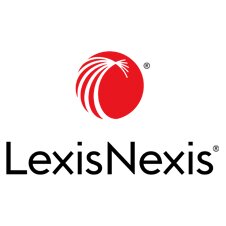LexisNexis case study: How Kingsley Napley retains and trains legal talent to drive business growth
When it comes to organic growth, attracting and retaining the best talent is crucial. According to a new report from LexisNexis, which explores the methods of organic growth used by the UK’s leading law firms, the right skills at both senior and junior levels are key for strategic business development. There is no growth without the right people in place to drive it.
LexisNexis spoke to Linda Woolley, Managing Partner at Kingsley Napley, to discover how the firm has nurtured its strong culture and has aligned business development with its strategic growth objectives.
What is Kingsley Napley doing to attract and retain good lawyers?
Our appeal to both existing members of the firm and potential recruits is our strong culture. We were the leading London law firm for the fourth year running in the Best Companies to Work for Survey 2021 and feedback from this process consistently suggests Kingsley Napley’s collegiate and people-based culture plays a large part in that success. The 2021 survey results highlighted, for example, that staff highly rated workplace factors of personal growth, wellbeing and giving something back as well as the leadership team’s commitment to open communication and a strong set of values (teamwork, respect, integrity, fairness). 99% of staff agreed that the Firm has a strong social conscience; 93% of staff agreed that the experience they gain from their job is valuable for their future and 71% of staff agreed that they are happy with the balance between their work and home life.
In addition, Kingsley Napley has an impressive record when it comes to D&I and that is a powerful differentiator in today’s marketplace. It already ‘walks the talk’ in areas like female talent (over 50% of partners and over 70% of fee earners are women) and it is making strides to increase its constituency of BAME talent. Thanks to its work with Rare recruitment, 50% of the firm’s 2021 trainee intake were from BAME backgrounds.
What are today’s lawyers looking for from an employer?
The firm works hard to be a supportive employer. It was open to flexible and part-time working way before Covid was even heard of. Its policy post-pandemic is to recommend people come into the office for 40-60% of their pro rata hours but it trusts people to do the right thing and this is not prescriptively monitored. It led the way in the legal sector with the introduction of a Pregnancy Loss policy and its support for the Menopause Pledge and introduction of menopause related counselling and awareness training within the firm.
There are an array of committees supporting and celebrating diversity, working parents, charitable and responsible business initiatives, which are very active and where staff are encouraged to fundraise, do pro bono work and generally contribute to their local community.
The fact that Kingsley Napley’s Managing Partner firmly believes a supported and happy workforce is a productive one very much sets the tone from the top down. It is this ‘nice place to work’ ethos rather than salary levels which forms the heart of its retention and recruitment strategy.
In addition, it helps that Kingsley Napley has a reputation for excellence. The firm had its best ever set of rankings in the Legal 500 last year, demonstrating its reputation in the external marketplace. And it moved to state-of-the-art new premises last July with a workspace designed around collaboration and activity-based working, the latest technology and modern accommodation features like yoga and cycle rack rooms which is appealing to existing staff and potential joiners.
What training do you offer?
The firm’s professional training and development programme is second to none, with programmes to support the transition to Senior Associate and Partnership, delivering feedback and developing team members. Kingsley Napley gives each team a training budget, supports relevant qualifications and has access to anytime content from a host of e-learning and on-demand learning services.
What have you found to be some of the most effective methods of driving business development opportunities?
Kingsley Napley recently reshaped its BD&M function to focus more on business development, rather than a brand-based marketing approach. It has upgraded its BD team and invested in a new CRM methodology and system to help drive this forward.
Whilst the firm’s brand, media reputation, presence on the web and success in directories remain important, the firm has sought to take a more organised, targeted and systematic approach to BD.
This involved a detailed review exercise to prioritise client targets and practice “propositions” across the firm and led to the creation of a gold/silver/bronze grid to determine the level of marketing support each should receive.
As a result, all BD is now strategically aligned with the firm’s business plan and growth objectives and there is an enhanced team to support this freeing up fee earner time in delivery.
One successful initiative arising from this, for example, has been our partnership with the NGO Creative United whereby we offered money laundering regulation training to its members, teamed with them to generate PR and had a joint presence at the London Art Fair recently. This has generated various potential client leads and gave us valuable endorsement in seeking to work with arts-based organisation clients.
What marketing strategies are proving most successful in terms of driving growth?
We have invested significantly in digital marketing in the last year. We ensure our online presence is optimised in all that we do, from copy SEO to considering when and how we tweet and post on other social media channels. We have also rolled out LinkedIn training across the firm to help fee earners realise the huge potential in this channel for BD and sales generation. This is already bearing fruit with the firm well above its close competitors in LinkedIn followers.
Also, having switched exclusively to online events during the pandemic, we have recently recommenced in-person face-to-face events, be that networking or training exercises, seminars in office or more social/ activity-based occasions. Our Criminal Litigation team hosted a Cross Border Criminal Law Event, for example, which was well attended and our Family team have held a series of popular peer-to-peer debates. Perhaps unusually compared to other law firms, Kingsley Napley markets itself to other lawyers so as to win cross-referral and conflict work and in both of these practice areas these events were designed for this audience and secured impressive turnouts. In person events are now proving popular and a good way to reconnect with contacts and cement new relationships.



